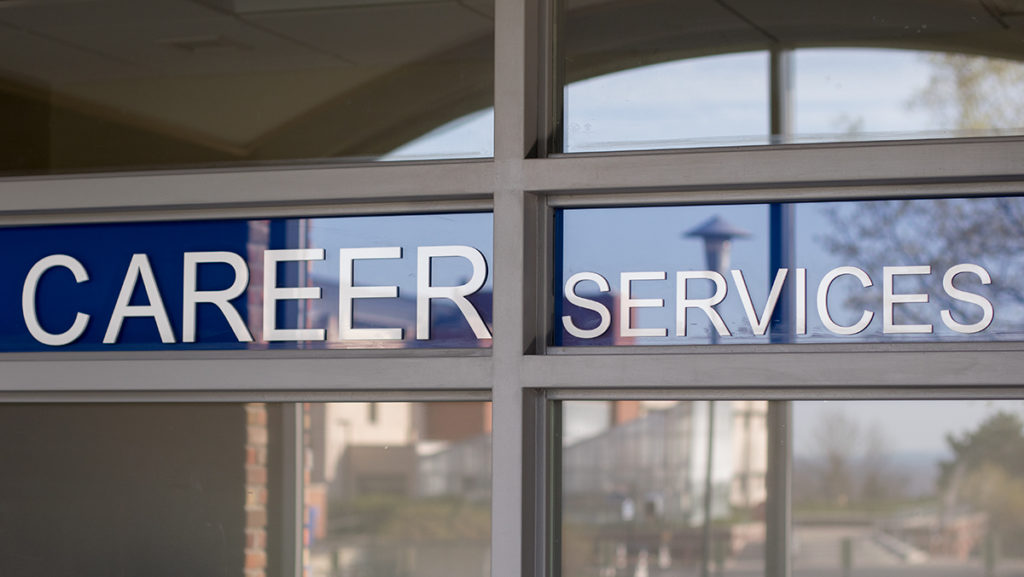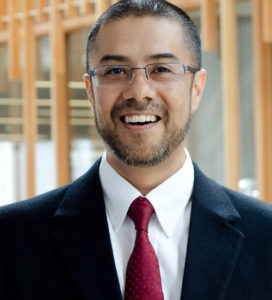The Office of Career Services has appointed Daniel Pascoe Aguilar as the new executive director.
Pascoe Aguilar has accumulated over 30 years of experience in religious organizations, social service and higher education. Originally from Mexico, he came to the United States after receiving his Bachelor of Arts degree in industrial design from the Universidad Autónoma Metropolitana. After coming to the U.S., he received a Master of Divinity from Palmer Theological Seminary, a Master of Science in instructional design and a doctorate in instructional systems technology from Indiana University.
Through his educational experience, Pascoe Aguilar said he discovered his passion for preparing students to become ready to lead. He will begin his position June 26.
Staff Writer Sierra Guardiola spoke with Pascoe Aguilar about his experiences and transition to the college.
This interview has been edited for length and clarity.
Sierra Guardiola: How did you decide that being involved with career services was the right career path for you?
Daniel Pascoe Aguilar: I majored, back when I was in Mexico, in industrial design. It is a great field … but it was a very business-oriented type of experience that made me realize that I wanted to work in a service–type of field. I went from my degree in Mexico in industrial design to seminary and did a bit of master’s of divinity in Philadelphia. I eventually transitioned, and I started to think, “Well, I need something that’s a little bit more concrete to match my values and my interests,” and I became the director of a crisis shelter for homeless families in San Francisco. I did that for five years, and I started to like the developmental aspect of my work … in terms of helping people realize their potential and fight for it and work to grow and become someone better. Then I came across university environments where I could do that with students who were in college. I realized that a big area of opportunity was to help our future generation of leaders … develop a better reality. For 15 years, that is what I have been doing. I come to work every day excited because I think I am making at least a little dent on the new generation, envisioning and dreaming what they can do, and also preparing so that they can be ready to do so when it’s time.
SG: When you were attending school, did you utilize the career services center?
DPA: I graduated a long time ago, and I graduated from a public school in Mexico. There were not really career centers back then there. It wasn’t as prominently publicized. It was not something that I pursued because I wasn’t aware of it, and it wasn’t a sophisticated operation like the ones we have in the United States.
SG: Did that have any influence on you wanting to help students find a career when they were in college?
DPA: Definitely. My navigation led me to all these complicated questions that I needed to answer, and you need to answer them on your own if you don’t have a career center available. Back then, to be honest, I did not know what I did not have. But looking retrospectively, I could see how I would have loved to have a career counselor and a career adviser with whom I could have spoken.
SG: What are some strengths that you bring with you to help students at the career center?
DPA: I have presented about a systemic approach to career services, which helps the operation, students and the whole community to see the big picture and the interconnections across different aspects of the work that we do. The career outcome of Ithaca College and higher education doesn’t only matter to students and their parents and career services staff — it matters to everyone. We are working with a new generation that will determine what our future looks like. The many challenges that we are seeing right now — economy, sustainability, politics, international relations and social justice — all those things that we haven’t been able to solve, the solution is preparing our new generation and diversifying it and empowering that diversity to help us think outside the box, to help us figure out new solutions that involve everyone. Something I will be bringing to Ithaca College is the idea of career communities that make a robust breadth of opportunities for students to network.
SG: What made you decide to apply to the position at Ithaca College?
DPA: I was once approached by colleagues who were consulting for Ithaca College to figure out how to strengthen the career development support for students. When they learned about what Ithaca College was doing with the IC 20/20 Vision and the Integrated Core Curriculum, they thought it had my name written all over it. I wasn’t looking, but I checked it out. The vision, the focus on integrated, holistic and experiential education that Ithaca College has is just exactly my cup of tea.
SG: Are there any improvements that you hope to make once you join the career services center?
DPA: My plan is to go to Ithaca College and first start doing listening tours. I want to know what students need, what is missing, what are things that could make a difference. I want to make sure that how we proceed with our work is one that stems out of the needs and opportunities that the community needs. The work I have been doing at the University of Oregon for the last five years has been on developing a process through which students make sense out of their co-curricular experiences. Some things you learn in the classroom, but many others you learn outside of the classroom. Employers are looking for transferable skills that you can then apply to different kinds of environments. There’s a concept that is developing called career communities, which then makes available a virtual presence. It works on developing webpages that students can use to find mentors, academic and career advisers, pools of employers, and the posting of internships and jobs, and alumni who have graduated to interact and connect with. … There are other ideas I want to bring, but I first want to sit down and listen to see where the major gaps are and where opportunities are and build strategies that will be systematic and comprehensive, and will make a significant impact on student experience and success in their careers.








